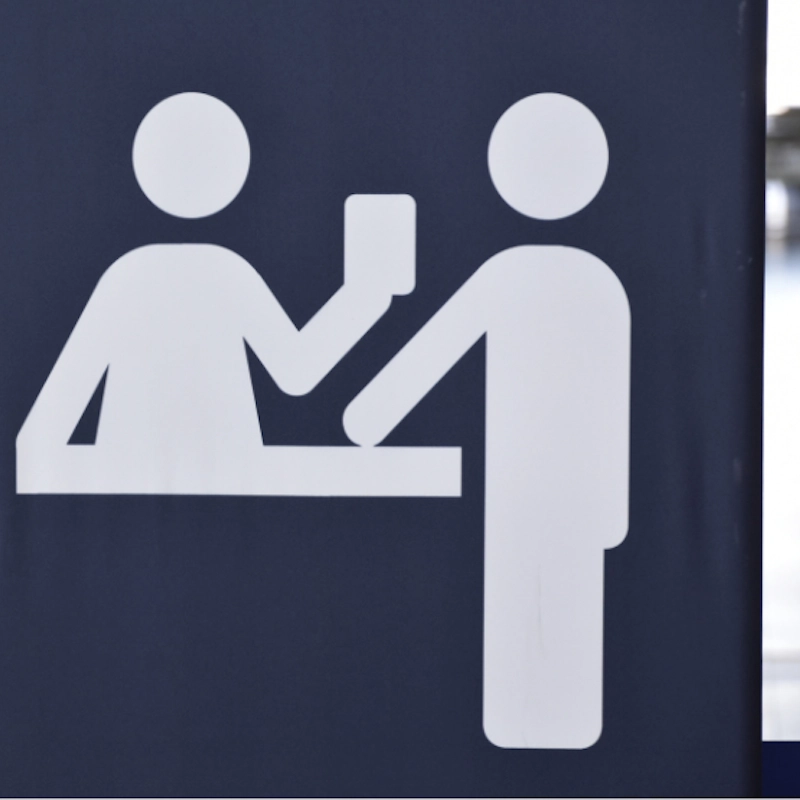The New Requirements for Traveling to Europe in 2025
Sarah Pardi - August 11, 2025
Home > Travel Requirements, Policy & Authorization > The New Requirements for Traveling to Europe in 2025
Share this post
Planning a trip to Europe has a lot of moving parts. There's the exciting stuff like where you're going to go and what amazing sites you're going to see. Then there's also the logistical stuff like whether or not you need a visa and what's required to visit.
There have been a lot of recent changes when it comes to tourism in Europe. In this article, we're going to cover them all so you know what you will need to do for your upcoming trip.
What are the new requirements for traveling to Europe?
There are several new requirements when it comes to European travel. Some have already gone into effect, while others are expected to launch in the coming months and years.
We're going to take a look at both so you have a good idea of the requirements no matter when your upcoming trip to Europe is.
First, here is a list. We will go into each line item in more detail in the next few sections.
- US, UK, and Australian citizens (among others) will need to get pre-travel authorization before visiting 30 popular countries in Europe.
- US, Canadian, and Australian citizens (among others) must get pre-travel authorization to visit anywhere in the United Kingdom.
- Passport stamps are going away for 29 countries in Europe.
- There are new travel policies in several popular countries in Europe, including Spain, Greece, and Italy.

Pre-travel authorization for 30 countries in Europe
If you're a US or UK citizen, you will need to get pre-travel authorization to go to popular countries in Europe from 2026 on.
This pre-travel authorization is called ETIAS (short for European Travel Information and Authorisation System).
What is it? ETIAS, in a nutshell, is permission to enter the Schengen area (and Cyprus).
Planning a trip to Europe?
Get comprehensive travel insurance for peak peace of mind ??♀️
Once this requirement goes into effect, travelers from specific countries (including the US and UK, but several others as well) will need to apply for authorization before heading to any of the following countries:
Austria, Belgium, Bulgaria, Croatia, Cyprus, the Czech Republic, Denmark, Estonia, Finland, France, Germany, Greece, Hungary, Iceland, Italy, Latvia, Liechtenstein, Lithuania, Luxembourg, Malta, the Netherlands, Norway, Poland, Portugal, Romania, Slovakia, Slovenia, Spain, Sweden, and Switzerland.
The application process is entirely online, but it does cost 7 euros per person (those under the age of 18 and over the age of 70 can apply free of charge).
When does it go into effect?
ETIAS is expected to go into effect at the end of 2026.
Who is exempt?
EU/EEA/Schengen country citizens do not need to apply for ETIAS. Additionally, anyone with a valid Schengen visa does not need to apply.

Pre-travel authorization for UK
Similar to ETIAS, many travelers heading to the United Kingdom now need to apply for ETA.
ETA, like ETIAS, is a pre-travel authorization that gives foreign travelers permission to go to the United Kingdom (which includes England, Wales, Scotland, and Northern Ireland).
US, Canadian, and Australian citizens, as well as others, must apply for ETA before they travel to the UK. It is already in effect.
From April 1, 2025, EU/Schengen country citizens will be required to apply for ETA.
The application process is entirely online and costs £10 per person.
When does it go into effect?
This new policy is currently in effect for many nationals, including US citizens. EU/Schengen country citizens must apply for ETA from April 1, 2025.
Who is exempt?
UK citizens, Irish citizens, and those holding a valid visa for the UK.
Passport stamps are going away for 29 countries in Europe.
While there isn't anything for you to do as a traveler per se, it is helpful to know that passport stamps are being phased out for 29 countries in Europe (the Schengen area).
The European Union is introducing a new international border system called EES (Entry/Exit System). Once this system has launched and is fully operational, passport stamps will be phased out, as well as physical Schengen visas stamped into passports.
When does it go into effect?
Once EES is fully operational, which is currently slated for autumn of 2025.

New policies in specific countries
While some of the changes are sweeping (like ETIAS and ETA), others are more specific, especially for countries that have seen a large upswing in tourism in the past few years.
New requirements for Spain
There is a new policy that requires all travelers renting lodging (hotels, Airbnb, etc.) or cars in Spain to submit a number of personal details (upwards of 40-60 pieces of information).
When renting, travelers must share details about themselves, their travels, and payment information. These details will be held by the company you're doing business with as well as the Spanish government.
When does it go into effect?
It is already in effect.
New requirements for Greece
While it isn't a new requirement, Greece has increased its tourist taxes for travelers renting accommodations (including hotels and short-term rentals like Airbnbs).
Travelers heading to Greece can expect to pay more each night they stay. The rate depends on the type of accommodation as well as the time of year you're visiting.
On top of that, a new tax has been created and implemented: the cruise tax.
Travelers enjoying cruises in Greece will be required to pay a tax at cruise ports in Greece. The specific dollar amount will depend on the port.
When does it go into effect?
It is already in effect.
New requirements for Italy
Italy has initiated a new policy that does away with the prized self-check-in.
One perk about private rentals through services like Airbnb, Booking.com, and Vrbo is the option to check into your accommodation autonomously.
In a nationwide effort to combat crime and terrorism, Italy has decided to do away with this option, now requiring hosts to meet with their guests face-to-face.
When does it go into effect?
It is already in effect.
If you're traveling to the Schengen area from the UK, make sure you understand which requirements apply to you.
Coming soon...
In the next few years, the Schengen visa application process is going online. Today, it's a manual process that requires in-person appointments and paper applications.
By the end of the decade, EU VAP, a brand new digital platform, will serve as the official portal for online Schengen visa applications!
Related posts
Upcoming travels ? Get Insured !
Find the right insurance for your trip by using our powerful comparison tool!
Sarah Pardi - August 30, 2025
Sarah Pardi - August 29, 2025
Sarah Pardi - August 28, 2025
Sarah Pardi - August 23, 2025





